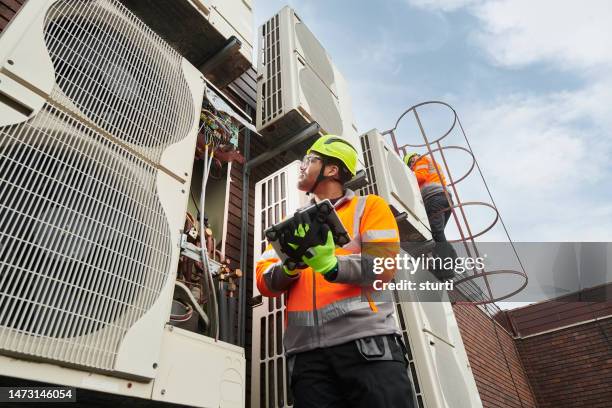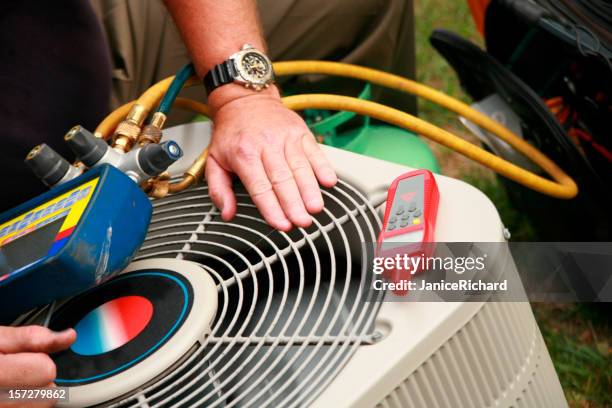Elevate Your Home’s Efficiency with Routine heat pump service
Elevate Your Home’s Efficiency with Routine heat pump service
Blog Article
Choosing Between a Warmth Pump and Heater: Secret Considerations for Your A/c Requirements
When examining home heating choices for heating and cooling requires, the choice in between a heatpump and a furnace can be complicated. Each system supplies distinct benefits customized to particular climates and energy effectiveness goals. Understanding these distinctions is essential for making an educated selection. Trick elements such as installation expenses and environmental effect even more make complex the choice procedure. Which alternative genuinely straightens with one's convenience and sustainability preferences? The complying with areas will discover these considerations carefully.
Understanding Warmth Pumps: Exactly How They Function and Their Benefits
While lots of property owners consider various home heating choices, understanding just how heat pumps feature and their benefits can significantly affect their decision. Heat pumps run by transferring warm instead of creating it. In the wintertime, they remove heat from the outside air or ground and transfer it inside, while in the summer season, they reverse this process, cooling down the home by getting rid of heat outside. This double capability makes them versatile for year-round environment control.One of the primary benefits of heatpump is their energy effectiveness. They make use of considerably less electrical power compared to traditional heating systems, possibly causing lower energy expenses (heat pump service). Additionally, warm pumps have a smaller sized carbon impact, making them an eco-friendly selection. They likewise call for less maintenance than traditional systems, adding to long-term price financial savings. Overall, understanding the auto mechanics and benefits of warmth pumps can help home owners make informed decisions regarding their home heating and cooling down needs
Exploring Heaters: Kinds, Procedure, and Benefits
Heaters can be found in numerous kinds, consisting of gas, electrical, and oil versions, each with unique operational mechanisms. Recognizing these distinctions is vital, as they affect effectiveness and heating efficiency. Additionally, furnaces supply countless advantages, such as constant heat result and integrity in chillier climates.
Kinds of Heating systems
Furnace can differ considerably in layout and operation, with heaters being a popular choice amongst homeowners. There are a number of types of furnaces, each making use of various fuel resources and modern technologies. Gas heating systems are typical, leveraging natural gas to produce warmth effectively. Electric heating systems, on the other hand, utilize electrical resistance to produce heat, typically favored for their uncomplicated installation. Oil heaters, while less usual, are reliable in areas with minimal gas gain access to (ductless mini splits). In addition, condensing furnaces make the most of power efficiency by recording and reusing exhaust gases. Each kind operates with a system of heat exchangers and ductwork to distribute cozy air throughout a home. Comprehending the differences between these heating system kinds is necessary for informed cooling and heating decisions
Advantages of Heating systems
For house owners seeking trusted heat during chilly months, the benefits of heating systems are substantial. Furnaces supply constant heating, making sure also temperature levels throughout the home. They are particularly effective in extreme cool, typically surpassing warm pumps in icy problems. Numerous types, consisting of gas, electrical, and oil heating systems, offer adaptability to fulfill varied needs and preferences.Furnaces additionally tend to have lower initial installation expenses compared to warmth pumps, making them a much more easily accessible choice for several. Their robust style adds to a longer life-span, with several devices lasting over 15 years with appropriate maintenance. In addition, modern-day furnaces are often outfitted with sophisticated modern technology for boosted effectiveness, which can result in decreased energy costs. On the whole, furnaces stay a trustworthy option for reliable home heating.

Power Performance: Comparing Warmth Pumps and Furnaces
When comparing power effectiveness between warm pumps and heaters, the Seasonal Energy Effectiveness Ratio (SEER) plays a vital duty in establishing performance. Furthermore, a functional cost analysis discloses the long-lasting financial ramifications of each system. Comprehending these aspects can guide house owners in making educated decisions concerning their home heating solutions.
Seasonal Power Efficiency Ratio
Energy efficiency plays a crucial role in the decision-making process between warm pumps and heaters, specifically when considering the Seasonal Energy Effectiveness Ratio (SEER) This metric actions the cooling efficiency of heatpump over an entire air conditioning season, offering a standard means to assess performance. Greater SEER rankings indicate greater energy performance, translating to lower energy usage and minimized energy expenses. On the other hand, heaters are typically assessed making use of the Yearly Gas Use Performance (AFUE) ranking, which mirrors home heating performance. When contrasting these 2 systems, home owners must focus on SEER scores for warm pumps, as they directly influence total power cost savings and environmental sustainability. discover here A complete understanding of SEER can significantly influence the lasting satisfaction and cost-effectiveness of the picked a/c remedy.
Operational Price Evaluation
Comprehending the operational prices connected with heat pumps and furnaces is essential for house owners assessing their alternatives. Heatpump generally supply higher energy effectiveness, converting electrical power into warmth with very little waste. This results in reduced monthly energy expenses, especially in modest environments. Conversely, conventional furnaces, specifically gas versions, may have reduced ahead of time expenses but can incur greater operational expenditures over time as a result of fuel costs and performance ratings.Moreover, heatpump can function as both home heating and cooling systems, potentially reducing the requirement for different heating and cooling systems. While initial financial investments for heatpump may be higher, their long-lasting cost savings in energy performance can make them a more affordable option for many families. Mindful evaluation of regional power prices is necessary to determine the best choice.
Installment Costs: What to Expect for every Home Heating System
Installment costs for furnace can vary significantly between heatpump and heaters, affecting house owners' decisions. Warm pumps normally have greater ahead of time installment costs, commonly varying from $3,500 to $8,000, depending upon the unit size and complexity of installation. This includes the outside system, indoor handling system, and needed ductwork modifications. Conversely, heating systems have a tendency to have lower initial costs, averaging in between $2,500 and $6,000, which can be appealing for budget-conscious homeowners. Setup expenditures can raise if considerable ductwork is required.Moreover, the choice of fuel kind for heating systems-- natural gas, lp, or electric-- can additionally affect installation prices. While warmth pumps use energy efficiency, their first financial investment might deter some customers. Inevitably, examining installment costs along with long-lasting cost savings and efficiency will certainly help homeowners in making educated decisions concerning their heating unit.
Environment Considerations: Which System Executes Better in Your Area
Just how do climate problems affect the efficiency of heating unit? The performance of heatpump and heaters can vary substantially depending on the regional environment. In moderate climates, warmth pumps excel by successfully transferring warm from the outside air, making them an energy-saving alternative. Their efficiency reduces in extremely chilly temperature levels, where they may have a hard time to remove enough warmth. Conversely, heaters, particularly gas models, supply reputable and regular heat no matter exterior problems, making them more suitable in cooler regions.In locations that experience milder winters, heat pumps can run effectively year-round, offering both heating and air conditioning. On the other hand, areas with harsh winters months typically profit from the toughness of heaters. Ultimately, comprehending the regional environment is crucial when choosing between a heatpump and a heating system, as it directly impacts their operational effectiveness and general efficiency.
Maintenance Requirements: Long-Term Care for Warmth Pumps vs. Furnaces
While both heatpump and heaters need normal upkeep to ensure peak performance, their details needs and treatment routines vary considerably. Furnaces generally require less frequent attention, with yearly evaluations being adequate to look for gas leakages, clean filters, and examine total performance. Their less complex layout usually enables for simple repairs.In contrast, warm pumps necessitate semiannual maintenance as a result of their double duty in heating and cooling. This consists of cleaning coils, examining refrigerant degrees, and making certain that both the interior and outdoor devices function at their ideal. In addition, heatpump maintenance often entails more complex elements, making specialist maintenance essential.Neglecting maintenance can cause diminished effectiveness and increased energy prices for both systems. Ultimately, house owners should consider these lasting care demands when picking between a warmth pump and a heater, as positive upkeep can extend the life expectancy and efficiency of either system significantly.
Environmental Effect: Picking a Sustainable Home Heating Alternative
The ecological impact of heater is an important examination for homeowners looking for lasting options. Heat pumps are typically a lot more energy-efficient than typical furnaces, as they transfer warm instead of create it, substantially reducing carbon emissions. By making use of renewable resource resources, such as air-source or geothermal warmth pumps, house owners can better minimize their eco-friendly footprint.On the various other hand, all-natural gas heating systems send out greenhouse gases and add to air contamination, though they commonly supply greater heat result. Nonetheless, advancements in technology have led to the growth of high-efficiency furnaces that minimize emissions.Ultimately, picking a heater includes evaluating effectiveness against ecological you can try these out impact. Home owners are motivated to reflect on neighborhood power resources and incentives for eco-friendly systems, guaranteeing an option that aligns with both individual convenience and ecological obligation. The decision influences not only instant comfort yet likewise long-lasting sustainability and environmental wellness.
Frequently Asked Questions
The Length Of Time Do Warmth Pumps and Furnaces Normally Last?
The lifespan of heatpump commonly ranges from 15 to twenty years, while furnaces can last in between 15 to 30 years. Regular upkeep considerably impacts their longevity and efficiency in offering home heating options.
Can I Utilize a Heatpump in Very Cold Climates?
Heatpump can operate in very cold environments, yet their effectiveness decreases as temperatures decline. In such conditions, additional home heating resources might be needed to maintain comfortable indoor temperature look at this site levels and guarantee peak performance.

What Is the Noise Level of Warm Pumps Versus Furnaces?
The sound degrees of warm pumps and heaters differ significantly. Normally, warm pumps run even more silently than typical heating systems, making them more suitable for those sensitive to sound, while heaters may produce louder functional sounds during heating cycles.
Are Heat Pumps Suitable for Both Cooling And Heating?
Heatpump are indeed suitable for both heating & cooling (heat pump service). They operate by transferring heat, providing efficient temperature level control year-round, making them a flexible selection for house owners seeking an all-in-one HVAC remedy
What Size Furnace Do I Required for My Home?
Figuring out the suitable size home heating system for a home needs assessing variables such as square video footage, insulation quality, neighborhood environment, and the home's format. Consulting an expert can assure an accurate analysis and suitable convenience. Warm pumps typically use greater energy performance, converting electric energy right into warmth with minimal waste. In moderate climates, warmth pumps excel by efficiently transferring warm from the outside air, making them an energy-saving option. Conversely, heating systems, especially gas designs, offer reliable and consistent warm regardless of outside problems, making them preferable in chillier regions.In areas that experience milder winter seasons, warmth pumps can operate properly year-round, offering both heating and cooling. Heat pumps are normally extra energy-efficient than traditional furnaces, as they move warmth instead than create it, greatly minimizing carbon exhausts. By making use of eco-friendly power sources, such as geothermal or air-source warm pumps, property owners can additionally decrease their eco-friendly footprint.On the other hand, all-natural gas furnaces produce greenhouse gases and contribute to air contamination, though they commonly supply higher heat output.
Report this page